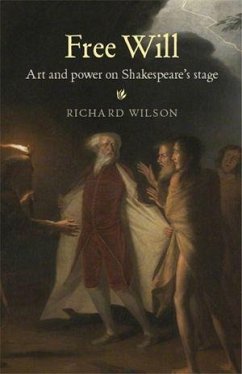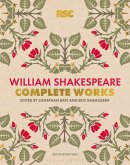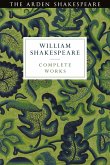Free Will: Art and power on Shakespeare's stage is a study of theatre and sovereignty that situates Shakespeare's plays in the contraflow between two absolutisms of early modern England: the aesthetic and the political. Starting with the dramatist's relationships with his patrons, Richard Wilson considers the ways in which this 'bending author' identifies freedom in failure and power in weakness by staging the endgames of a sovereignty that begs to be set free from itself. The arc of Shakespeare's career becomes, in this comprehensive new interpretation, a sustained resistance to both the institutions of sacred kingship and literary autonomy that were emerging in his time. In a sequence of close material readings, Free Will shows how the plays instead turn command performances into celebrations of an art without sovereignty, which might 'give delight' but 'hurt not', and 'leave not a rack behind'. By refusing to 'sing power's ode', Michel Foucault considered, Shakespeare became one of the founders of modern critical thought. But Free Will argues that Shakespeare did 'sing power's ode', though back to itself. Responding to recent critical work on both political theology and literary authorship, this is a revaluation that demonstrates how the plays anticipate the representational logic of the modern public sphere even as they dramatise the tragedy of its obstruction by the presence of the King. Free Will is a profound rereading of Shakespeare, art and power that will contribute to thinking not only about the plays, but also about aesthetics, modernity, sovereignty and violence.
Hinweis: Dieser Artikel kann nur an eine deutsche Lieferadresse ausgeliefert werden.
Hinweis: Dieser Artikel kann nur an eine deutsche Lieferadresse ausgeliefert werden.








